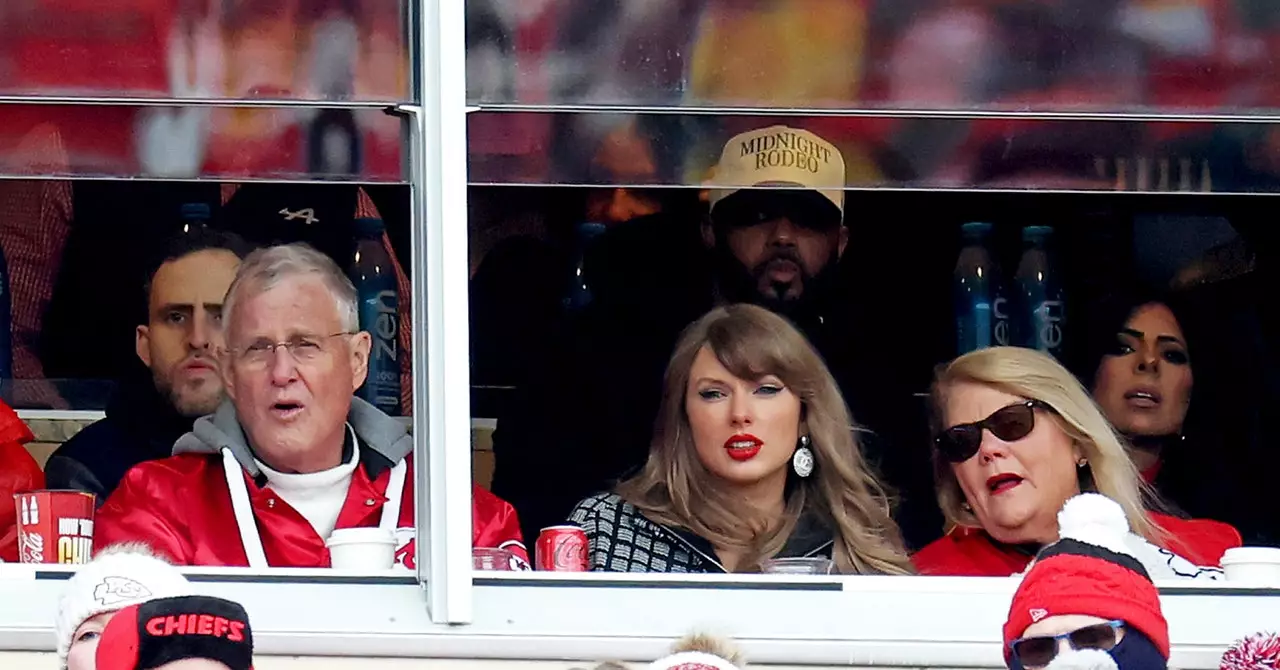In recent times, the overlap between pop culture and sports has grown increasingly complex, particularly with the rise of celebrity endorsements and the engagement of fans in non-traditional betting markets. Taylor Swift, a global pop phenomenon, has become a key figure in this crossover, particularly through her relationship with NFL star Travis Kelce. Betting companies, seeking to capitalize on this interest, have altered their marketing strategies to draw in a wider audience. This phenomenon, often referred to as the “Taylor Swift effect,” warrants a closer examination of its implications for the sports betting landscape and broader societal trends.
During the pre-season, numerous sportsbooks acknowledged the influence of Swift’s fanbase on betting patterns. Industry leaders like Tim Whitehead from BetRivers openly discussed the tangible impact of Swift’s relationship with Kelce, indicating a strategy to attract new bettors drawn by the power of celebrity narratives. While Swift’s presence initially led to a spike in Kelce’s betting figures, reports suggest that this fervor has somewhat dissipated. Early games in which Swift was absent saw comparable betting activity on Kelce’s teammates, indicating that bettors might soon overlook such celebrity associations as the excitement of the NFL season unfolds.
Michael Naraine, an academic specializing in sports management, posits that other dominating news stories, such as the US elections and the couple’s more settled relationship, have diverted attention away from the Swift-Kelce narrative. The so-called Swift effect still exists but is less pronounced than before, leading analysts to speculate on its longevity and future significance to the betting industry.
Demographics of Betting: Are Women Finally Joining the Scene?
Traditionally, sports betting has been perceived as a male-dominated activity, a stereotype that has persisted for decades. A recent study from the University of Queensland revealed that nearly 90% of regular sports bettors in Australia are male. However, as modern technology facilitates easier access to gambling platforms, there is a growing opportunity for female bettors to engage. This opening comes in response to targeted marketing strategies, such as novelty bets related to celebrities like Taylor Swift. The move to attract women through such unique markets reflects a gradual shift towards inclusivity in an industry previously dominated by male participants.
Despite Swift’s high profile, the reality remains that she is just one part of a more extensive tapestry of narrative-driven betting trends. For sportsbooks, embracing a variety of pop culture references—from award show speculation to political races—has become increasingly common to keep audiences engaged. As marketing strategies grow more sophisticated, the intersection of sports and pop culture will likely become even more pronounced.
Understanding Bettor Behavior: Gamblers vs. Recreational Wagers
Contrasting opinions exist regarding the motivations of different types of bettors. Scholars like Joshua Grubbs observe that ardent sports gamblers tend to prioritize statistics and performance metrics over celebrity narratives. However, recreational bettors, who represent the majority of participants in platforms like FanDuel, often find deeper connections in the stories and personas behind the games. The allure of personal stories, such as that of Swift and Kelce, becomes an engaging factor that may influence their betting behavior far more than statistical data.
This dichotomy raises important questions for sportsbooks regarding their marketing strategies. Should they focus on hard data to attract traditional bettors, or is there a valid strategy in leveraging pop cultural narratives to attract more occasional participants? As the betting industry navigates this fork in the road, their success may hinge upon discerning the preferences of their customer base.
As the market evolves, it raises ethical questions surrounding the promotion of gambling, especially to younger and potentially vulnerable audiences. Academics and professionals in the field are grappling with whether celebrity-driven marketing models serve the public interest or simply exploit emerging trends for profit. Platforms like BetOnline.ag are capitalizing on “click-baity” content associated with celebrities, yet the appropriateness of such strategies remains under scrutiny.
Moreover, industry insiders speculate that major events involving Swift, such as a Super Bowl halftime show, could dramatically shift public interest and betting activity. With ongoing discussions about parenthood or engagement, the landscape remains ripe for significant shifts that could elevate betting engagement even further. As the narratives involving Swift and Kelce evolve, so too will the marketing tactics used in the betting industry, ensuring this cultural intersection remains a dynamic and influential part of the sports landscape.
The intersection of sports betting and celebrity status exemplifies a broader cultural phenomenon. As betting becomes increasingly intertwined with pop culture narratives, the industry must continue adapting to new trends while addressing ethical considerations in its marketing strategies. The “Taylor Swift effect” may wax and wane, but its implications for sports engagement and betting culture are undeniable.

